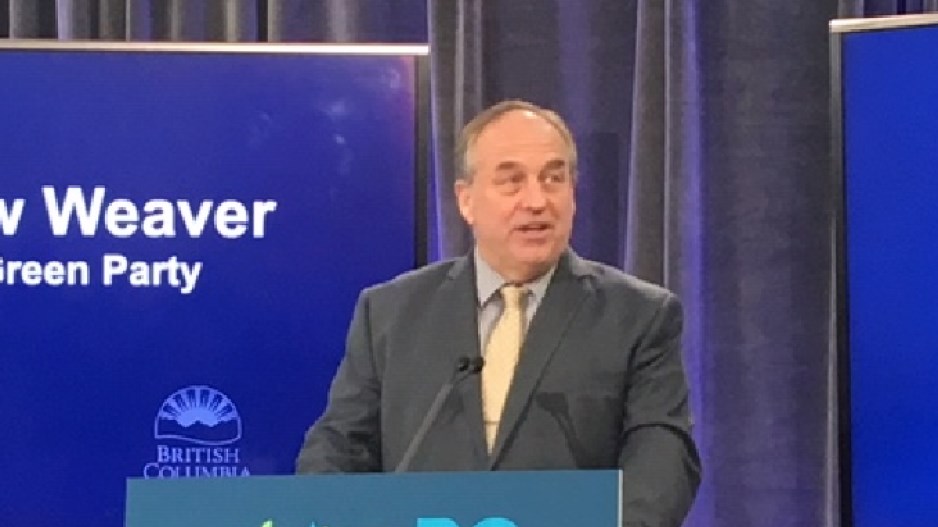Former BC Green Party leader Andrew Weaver has won an appeal of a February 2018 lower court ruling that found an article about him so “poorly written” and lacking in credibility that it couldn’t be considered defamatory.
“It seems to me that objectively these words would tend to lower Dr. Weaver’s reputation in the estimation of ordinary reasonable people and would thus meet the test of being defamatory,” B.C. Court of Appeal Justice Susan Griffin wrote in the unanimous decision of three judges.
When the B.C. Supreme Court ruling came out in 2018, Timothy Ball, a retired professor of geography at the University of Winnipeg and vocal global-warming sceptic, had called it a win for free speech.
The appeal court overturned that decision April 30.
“A reasonable person would read the article as alleging that Dr. Weaver was not professionally competent or qualified and was academically biased in his field of climate science,” Griffin ruled.
Weaver, the former University of Victoria Canada research chair in climate modelling and analysis, alleged Ball libelled him in a January 2011 article published on the conservative website Canada Free Press.
Weaver claimed the article implied that he was incompetent and unqualified to teach climate science at the university level and that he cheated Canadian taxpayers by accepting public funds for climate-science research.
While the article was retracted, Ball retained a lawyer when asked for an apology which Ball later gave.
B.C. Supreme Court Justice Ronald Skolrood found that while the article was “derogatory,” “it was not defamatory.”
As such, he dismissed Weaver’s suit against Ball.
Ball’s article was “rife with errors and inaccuracies” that showed a lack of attention to detail and an indifference to the truth, Skolrood wrote.
Weaver appealed, pleading that Ball’s earlier pleading of an alternative meaning to the defamatory words amounted to an admission that the words were defamatory, but in a different way than originally claimed by Weaver.
Griffin said the lower court judge “fell into error when determining the question of whether the article was defamatory, by taking into account the poor quality of the writing of the article in a subjective way based on evidence known to the court but not to the ordinary and reasonable reader.”
How an ordinary reader would take Ball’s article is the test, she said.
The lower court judge had also looked at Weaver’s involvement in the public climate change debate and the fact the article was billed as an opinion piece.
Ball had argued the case fell into the realm of protected fair comment.
Griffin disagreed.
“The judge’s analysis erroneously blurred the lines between the question of whether statements are defamatory and the question of whether the fair comment defence applies,” she wrote.
The court ordered the case returned to the trial court to consider issues of publication, the applicability of the fair comment defence and damages.
@jhainswo




